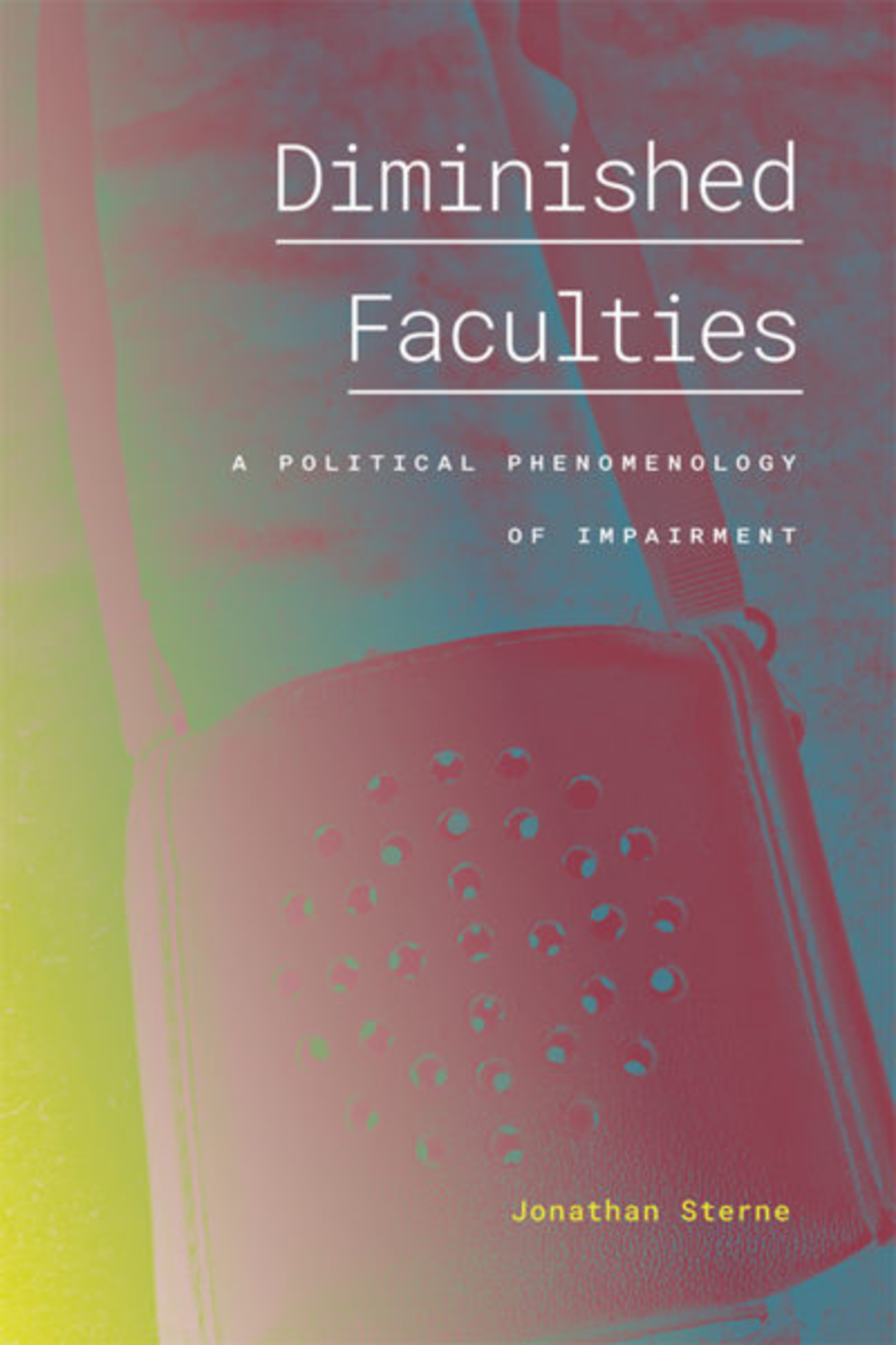Hannah Zeavin Reviews Diminished Faculties

BCNM faculty Hannah Zeavin recently reviewed Jonathan Sterne's Diminished Faculties: A Political Phenomenology of Impairment. In the article for boundary 2, Hannah discussed Sterne's Diminished Faculties description of "impairment" in the context of the current COVID-19 pandemic, in the rise of technology and new media, and in the 21st century as a whole.
From the article:
Sterne’s book is about many kinds of impairment, and their intersections in subjects who are understood to be normative nonetheless or even because they’re impaired; what we think of as normal (gradual hearing loss as we work, listen to music, age) versus what is marked off as different and constitutes an unquestioned disability (e.g., childhood deafness following viral illness).
Early in the book, Sterne quotes the disability studies adage, “you will someday join us.” This definitive book is also Sterne’s personal story of living in the matrixes of illness, impairment, and disability, in the materiality of their experience as well as the cultures that contain and produce those experiences. Rather than presenting a work at the end of learning, deleting all the traces of theorization up until the point of arrival, Sterne fully tells the story of how he “joined”: from study groups to blog posts, across changes in understanding and bodily experience. Diminished Faculties therefore provides a rigorous, moving account of the experience of the normal and the pathological, the accounted-for body both disabled and abled, and the one shoved to the margins. Sterne also offers his reader the account of impairment via a political phenomenology grounded in his own story while moving slowly and responsibly beyond it to reconceive impairment theory as a theory of labor, of media, and fundamentally, of political experience.
Read the entire article here!
